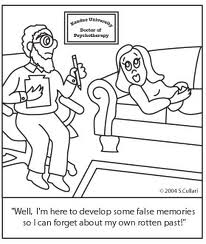A friend of mine recently discovered an ancestor who was gardener to a king of Norway. I asked her how she knew this and she replied that she had written documentation as well as a photo of him standing in the king’s garden. She provided other details which I no longer recall, but the story sounded sufficiently convincing at the time and I have no reason to believe otherwise.
Who wouldn’t want an ancestor with links to a royal family or who had achieved in his or her own right? Someone whose invention may have brought electric power to remote communities or whose philanthropy helped make available a cheap version of a life-saving drug?
An ancestor, however, doesn’t have to be noteworthy solely on the basis of having done noble deeds. Notoriety can be an equally attractive quality.
Until a few decades ago, Australians hid their jail-bird background out of shame. Now it has become fashionable to claim convict ancestry. In the eighties, I recall several of my newly acquired Australian friends – all of them law-abiding citizens – wryly referring to a distant forebear who had arrived on Sydney’s shores “dragging his or her chains behind them.” Those who could claim a famous convict ancestor were doubly blessed. One view is that this shift in attitude arose to differentiate “old Australians” from “new Australians” such as myself. [see, for example, Sue Ballyn, The British Invasion of Australia. Convicts: Exile and Dislocation 2011, page 24]
There is a strong urge to have our ancestors stand out from the crowd. Special characteristics – be they good or bad – make our relatives look interesting and set them apart from the common people. By association, they set us apart and make us look special too.
I am as guilty as the next person in wanting to believe certain things of my chosen ancestor, that he might have amounted to something, that he was different. But not all that we learn through oral history or even from official records is necessarily accurate. To quote cousin Avrom, a former professor of history and whose opinion has some authority:
“…(a) recurring theme… is the frequent inaccuracy of all sources of information relied upon by the amateur and professional genealogist – even the evidence of their own eyes! This inaccuracy is usually the consequence of carelessness and indifference rather than the product of deliberate deception. These strictures apply to official sources, just as much as, if not more than private records or memories…the more varied the sources, the greater the confusion.” (To be buried in Grimsby, page 4)
A barrister I once worked with suggested that there are five possible answers that a Court expert can give under cross-examination, one of which is “I don’t know”. Anyone who has given evidence in Court will know how hard it is to resist the urge to blather on in some vain hope of answering a question. This is exactly what the opposing side’s barrister hopes for and when the expert least expects it, will jump in with the killer punch. Less is definitely more.
My great-niece recently asked me two leading questions:
- Why are there shoes hanging from the overhead wires?
- Is the tooth fairy a lie?
One possible answer to the first question is that there might be a drug dealer in the area. I was disinclined to explain to a six-year-old what a drug dealer does or why it would be undesirable for her to mix with such a person. I did not know the answer to the second question at the time and decided to play it safe by saying “I don’t know” to both questions.
To return to our ancestor, there is no shame and certainly no sense of failure in being unable to account for every detail of his or her life. In fact, it can be quite cathartic to let go of a particular line of investigation that is going nowhere and move on to other areas.
Lack of information doesn’t mean that we cannot try to imagine what life might have been like for our relatives. There are many informative texts that we can draw from and while these may not paint a complete picture of our ancestor’s circumstances, they can at least provide some context.
I have since learned the correct answer to the tooth fairy question: “if you believe (in it), your wish will come true.”
And the other four stock responses my barrister friend shared with me are: “yes”, “no”, “could you please repeat the question?” and “that is outside my area of expertise”. I needn’t tell you how hard it can be to stick to those answers!
